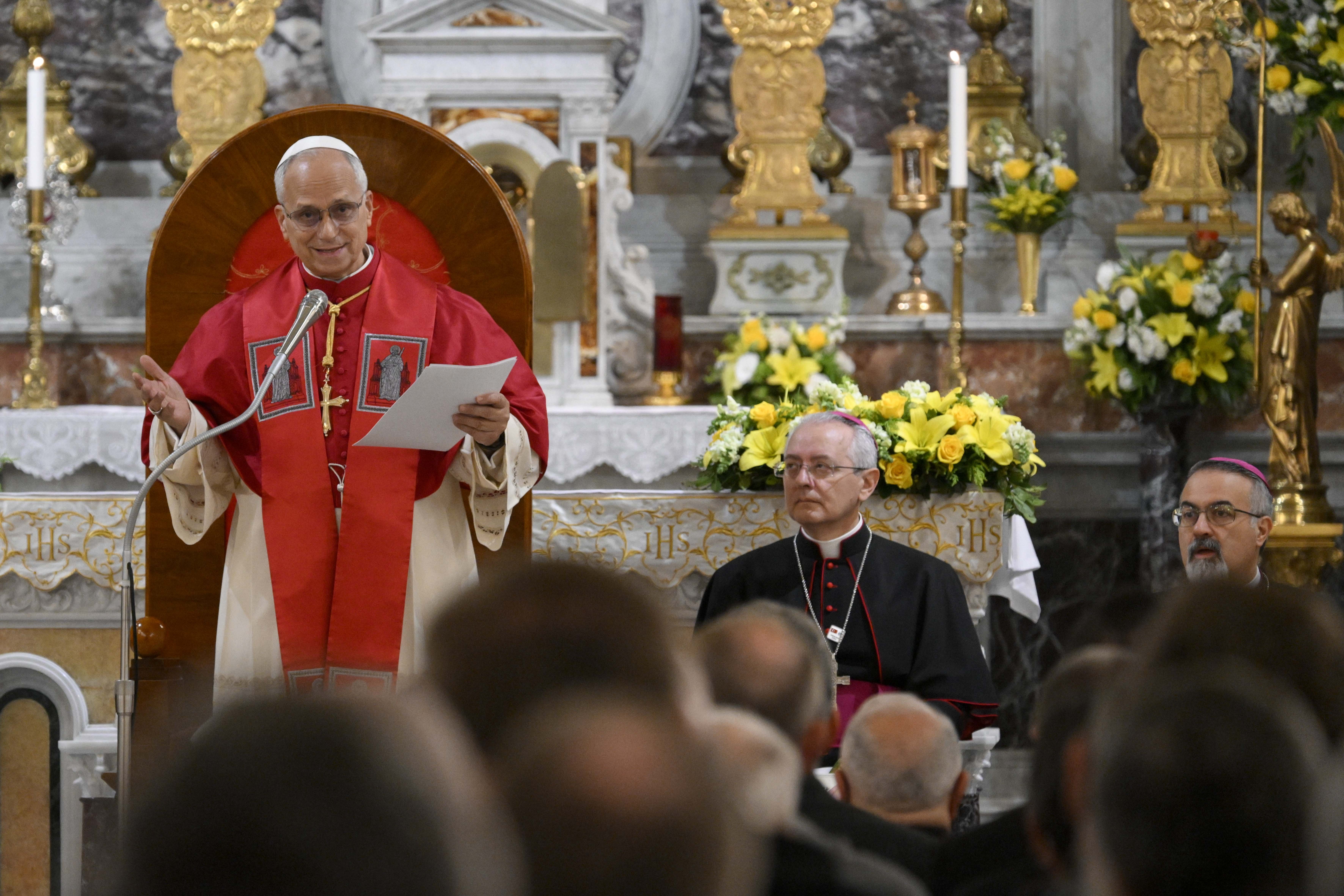April 6, 2018 at 1:53 p.m.
WORD OF FAITH
Who speaks for God
"All things are done according to God's plan and decision; and God chose us to be his own people in union with Christ"...Eph. 1:11
Even casual Scripture readers quickly discover that prophets have problems with religious leaders and religious leaders have problems with prophets. Today's first reading (Amos 7:12-15) narrates a classic confrontation between the two.
Since surfacing and listening to prophets is the most acceptable biblical way of finding out God's will in one's life, religious and civil leaders eventually developed a method to circumvent this process.
Kings and priests created a system of shrine and court prophets: people on their payroll whom they regularly consulted to find out Yahweh's will for them. Of course, because they "ate at the king or priest's table," their oracles almost always were what their employers wanted to hear.
That's part of the background for today's Amaziah-Amos encounter. Bethel's high priest is trying to rid his shrine of its worst critic. Amos not only uncovered the religious superficiality of such holy places; he insisted its clientele stay away.
Everyone, including Amaziah, heard his sarcastic chapter 4 command, "Come to Bethel and sin!" No wonder the priest is so determined to rid Bethel of him. Amos is the biggest threat to him and the shrine religion he personifies.
Not me
That's why Amos responds with the unbelievable statement, "I am no prophet!" It doesn't mean what it implies. He's simply reminding Amaziah that he's not his prophet.
Those who proclaim this reading during the Eucharist should emphasize the first word of Amos' remark. "Yahweh [not Amaziah] took me from following the flock and said to me, 'Go, prophesy to my people Israel!"
The most ridiculous part of Amaziah's tirade is his proposal, "Earn your bread prophesying [in Judah]!" One of the five rules for distinguishing real prophets from false prophets revolves around the fact that real prophets never profit from prophesying. Who in their right mind would pay someone for telling them the same things they'd stopped their consciences from telling them over the years?
Prophets are known for their next-to-poverty lifestyles.
Religious leaders who "live high on the hog" won't dare tell us about God's will; it would clash with their own behavior.
Jesus, the prophet, naturally commands those who carry on His ministry (Mark 6:7-13) to imitate His simple lifestyle. Only those who do will give credibility to the message they proclaim. "He instructed them to take nothing for the journey but a walking stick - no food, no sack, no money in their belts...not [even] a second tunic."
Neither were they to shop around for the best digs or food in town: "Whenever you enter a house, stay there until you leave," no matter how uncomfortable the bed or lousy the food.
Do it yourself
Those who are other Christs are to preach repentance: a 180-degree turn in one's value system. They can only do this in a convincing way after they themselves have achieved such a turnabout.
The disciple of Paul who wrote the letter to the Ephesians (Eph. 1:3-14) reminds his community where real wealth is to be found: "In him [Jesus] we have redemption by his blood, the forgiveness of transgressions in accord with the riches of his grace that he lavished upon us."
Those who surface that kind of treasure will truly understand God's will, God's plan for them.
Things really haven't changed much over the last 2,700 years. When anyone claims to be God's mouthpiece, there are a lot of questions to ask. In Amos' case, it was the person thrown out of organized religion who actually gave us God's will, not the representative of organized religion.
(07/09/09)
[[In-content Ad]]- Buffalo bishop calls nation, Christians to ‘do better’ in upholding migrants’ dignity
- Supreme Court weighs appeal from New Jersey faith-based pregnancy centers
- Pope Leo is first pontiff to go to St. Charbel’s tomb; visit is source of ‘great joy’ for Lebanon
- Situation in Gaza remains ‘critical’ despite peace plan, say Catholic leaders
- Pope tells reporters dialogue is always the answer to tense situations
- Choose the way of peace, pope says as he leaves Lebanon
- US bishops award over $7 million in grants to home missions, thanks to nation’s Catholics
- Catholic advocates raise alarm at Trump’s call to ‘pause’ migration from ‘Third World Countries’
- Record numbers of women are visiting pregnancy centers, study shows
- US theologian Weigel honored for defense of human dignity in the face of aggression







Comments:
You must login to comment.